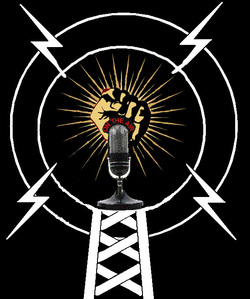Poet On Assignment

by Aurora Levins Morales
"Every week I write a couple of poems in response to the news. I don’t have time to polish them. They are not smooth and exquisite. They are sharp, rough, purposeful. Each day I ask myself, how can I make the news real? How can I keep people from going numb? How can I put a face on this story? How can I explain its history? It’s not whether the music’s good, says Pete Seeger, but what it’s good for.
Think of these poems as graffiti on the wall of a certain historical moment. I wrote fast, on a short deadline. Each day I scanned the headlines online, looking for the stories that I could make into something useful. A short item about women in Baghdad inducing labor so as not to be caught out in the coming bombardment. The death of Lori Piestewa, a young Hopi woman billed as the first female Native American combat casualty of a foreign war. The White House appeal for contributions to drop food on Afghanistan. The posthumous granting of citizenship to dead Latino soldiers. I began asking organizers what poems they needed.
Each day I thought about what was missing from the conversation and how to add it: Hope, clarity, a sense of history. That we have to love our country with an accurate and radical love and not surrender it to warmongers. That radicals must have double vision, one eye on the muddy present, one eye on the future we build toward. If either one closes, we fall. That it’s a long haul, and each step counts.
The pieces in this book were mostly written during the three years following 9/11. They include poems about Afghanistan and Iraq, Palestine/Israel, about Cuba, about union-busting and repression, about sustained radicalism. Writing under pressure, in direct response to immediate political needs, with instant audience response in the form of calls to the station was unlike any other writing experience I’ve had. It wasn’t a sustainable way of life for me. I prefer to write slowly. I prefer to polish. I like to be sure of my words before I send them out in the world. But for a short while, putting everything I had into writing urgent-response poetry was my difficult joy. " from A Poet On Assignment: Introduction
"Every week I write a couple of poems in response to the news. I don’t have time to polish them. They are not smooth and exquisite. They are sharp, rough, purposeful. Each day I ask myself, how can I make the news real? How can I keep people from going numb? How can I put a face on this story? How can I explain its history? It’s not whether the music’s good, says Pete Seeger, but what it’s good for.
Think of these poems as graffiti on the wall of a certain historical moment. I wrote fast, on a short deadline. Each day I scanned the headlines online, looking for the stories that I could make into something useful. A short item about women in Baghdad inducing labor so as not to be caught out in the coming bombardment. The death of Lori Piestewa, a young Hopi woman billed as the first female Native American combat casualty of a foreign war. The White House appeal for contributions to drop food on Afghanistan. The posthumous granting of citizenship to dead Latino soldiers. I began asking organizers what poems they needed.
Each day I thought about what was missing from the conversation and how to add it: Hope, clarity, a sense of history. That we have to love our country with an accurate and radical love and not surrender it to warmongers. That radicals must have double vision, one eye on the muddy present, one eye on the future we build toward. If either one closes, we fall. That it’s a long haul, and each step counts.
The pieces in this book were mostly written during the three years following 9/11. They include poems about Afghanistan and Iraq, Palestine/Israel, about Cuba, about union-busting and repression, about sustained radicalism. Writing under pressure, in direct response to immediate political needs, with instant audience response in the form of calls to the station was unlike any other writing experience I’ve had. It wasn’t a sustainable way of life for me. I prefer to write slowly. I prefer to polish. I like to be sure of my words before I send them out in the world. But for a short while, putting everything I had into writing urgent-response poetry was my difficult joy. " from A Poet On Assignment: Introduction